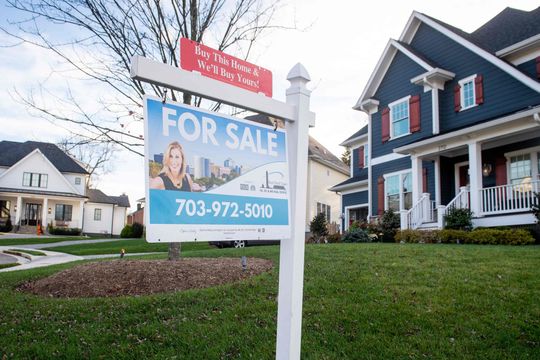Mortgage rates rose as market expects interest rates to stay higher for longer
The numbers: Mortgage demand fell as mortgage rates surged to multi-decade highs.
The 30-year mortgage rate hit it highest level since December 2000, and the jumbo rate rose to a 12-year high.
A jump in rates hurt demand for both refinancing and purchase applications. That overall pushed the market composite index — a measure of mortgage application volume — up, the Mortgage Bankers Association (MBA) said on Wednesday.
The market index fell 1.3% to 189.6 for the week ending September 22 from a week earlier. A year ago, the index stood at 254.8.
Key details: Home buying and refinancing demand fell as rates rose across the board.
Few buyers found it a good time to buy a home. The purchase index — which measures mortgage applications for the purchase of a home — fell 1.5% from last week.
Homeowners also found little interest in refinancing. The refinance index fell 0.9%.
The average contract rate for the 30-year mortgage for homes sold for $726,200 or less was 7.41% for the week ending September 22. That’s up from 7.31% the week before, the MBA said. The 30-year is at the highest level since December 2000.
The rate for jumbo loans, or the 30-year mortgage for homes sold for over $726,200, was 7.34%, up from 7.32% the previous week. The jumbo rate is at the highest level since January 2011, when the MBA began tracking the data.
The average rate for a 30-year mortgage backed by the Federal Housing Administration rose to 7.16% from 7.08%. The FHA rate is at the highest level since March 2002.
The 15-year rose to 6.73% from 6.62% from the previous week. The 15-year is at its highest rate since July 2001.
The rate for adjustable-rate mortgages rose to 6.47% from last week’s 6.42%.
The big picture: Since the U.S. Federal Reserve hit pause on hiking rates earlier this month, the market now expects rates to be longer for the time being, which pushed mortgage rates up.
The rise in rates is likely to hurt home-buying demand further, hurting sales of both new and previously owned homes. Refinancing activity is also likely to dry up further, as few homeowners have a rate higher than 7% that would benefit from refinancing.
What the MBA said: Higher rates pushed down applications “as both prospective homebuyers and homeowners continue to feel the impact of these elevated rates,” Joel Kan, deputy chief economist and vice president at the MBA, said in a statement.
Market reaction: The yield on the 10-year Treasury note BX:TMUBMUSD10Y was over 4.5% in early morning trading Wednesday.

